Improving observation skills Math Worksheets for Ages 5-8
6 filtered results
-
From - To
Unlock your child's potential with our "Improving Observation Skills Math Worksheets" designed for ages 5-8! These engaging, printable worksheets are crafted to enhance critical thinking and observational skills while promoting a strong foundation in math. Through fun activities and interactive challenges, children will learn to identify patterns, compare quantities, and sharpen their attention to detail. Ideal for classroom use or at-home practice, our worksheets support early learners in developing essential skills necessary for future math success. Give your child the tools they need to excel in math and foster a love for learning today! Explore our resources and watch them thrive!
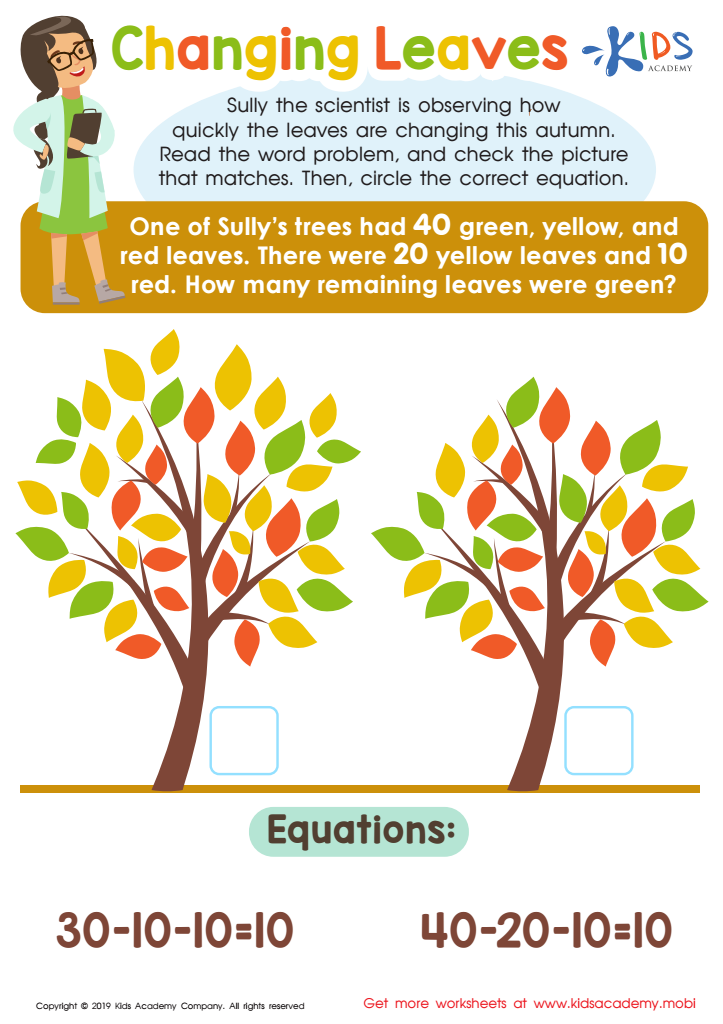

Changing Leaves Worksheet
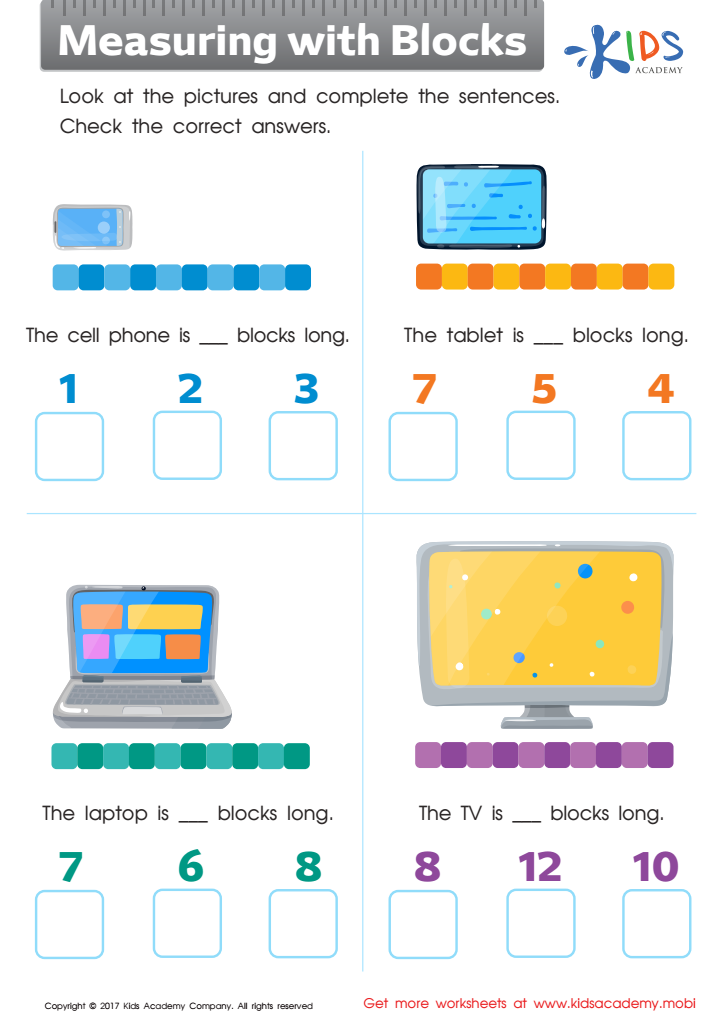

Measuring with Blocks Worksheet
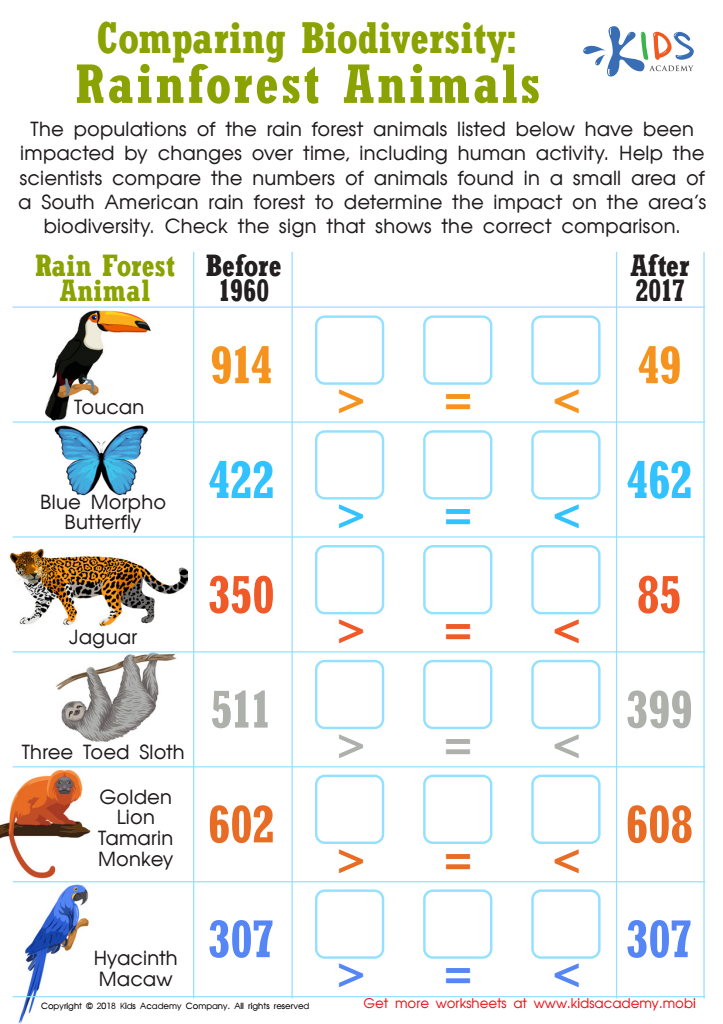

Comparing Biodiversity: Rainforest Animals Worksheet
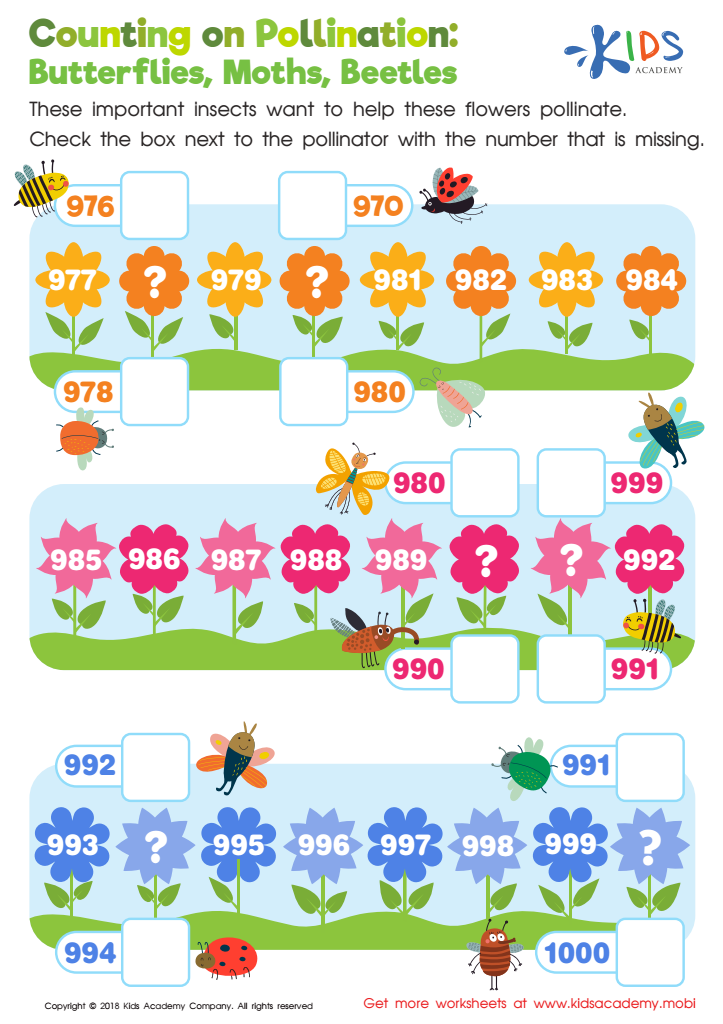

Counting on Pollination: Butterflies, Moths, Beetles Worksheet
Improving observation skills in math for ages 5-8 is crucial as it lays the foundation for critical thinking and problem-solving abilities. At this developmental stage, children are naturally curious, and enhancing their observational skills enables them to engage more deeply with their environment and mathematical concepts.
First, strong observation skills help children notice patterns and relationships in numbers and shapes, facilitating a better understanding of fundamental math concepts such as addition, subtraction, and geometry. For example, by observing how many blocks are needed to make a specific shape, children can learn spatial awareness and measurements.
Additionally, observation encourages children to ask questions, fostering a sense of curiosity and exploration. When children learn to observe carefully, they are more likely to seek answers and solutions independently, promoting a love for learning.
For parents and teachers, nurturing these skills means more than academic success; it promotes analytical thinking, patience, and perseverance. By integrating observation into everyday activities, such as counting objects during a shopping trip or analyzing patterns in nature, adults can help children develop a well-rounded skill set that aids academic achievement and everyday problem-solving. Investing in these skills early can set the stage for a lifetime of analytical reasoning.
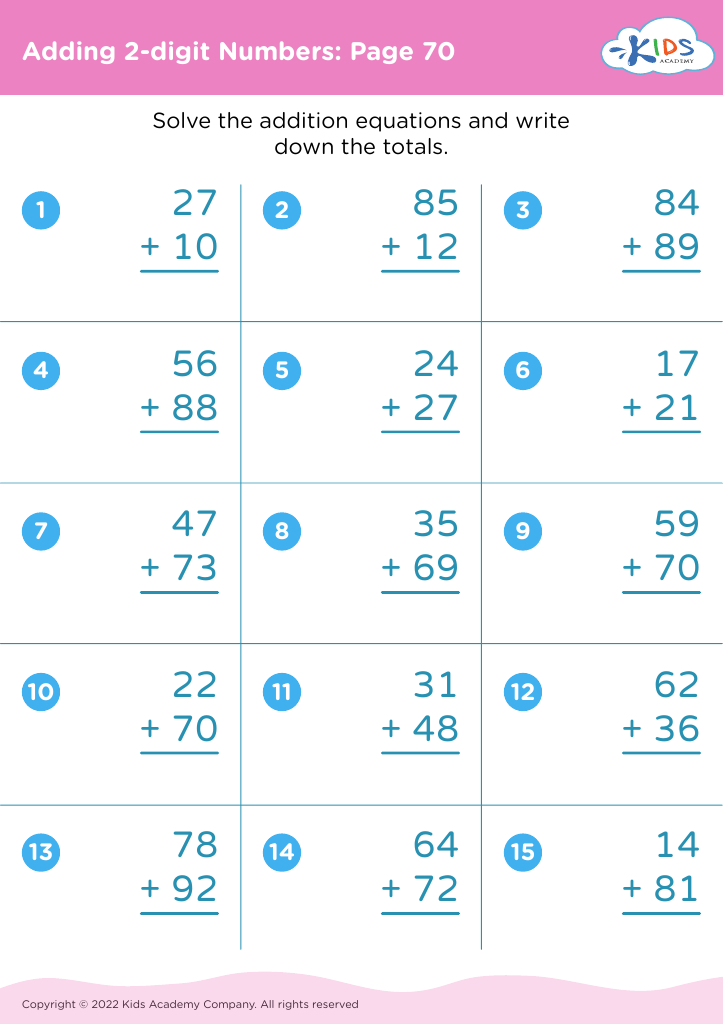

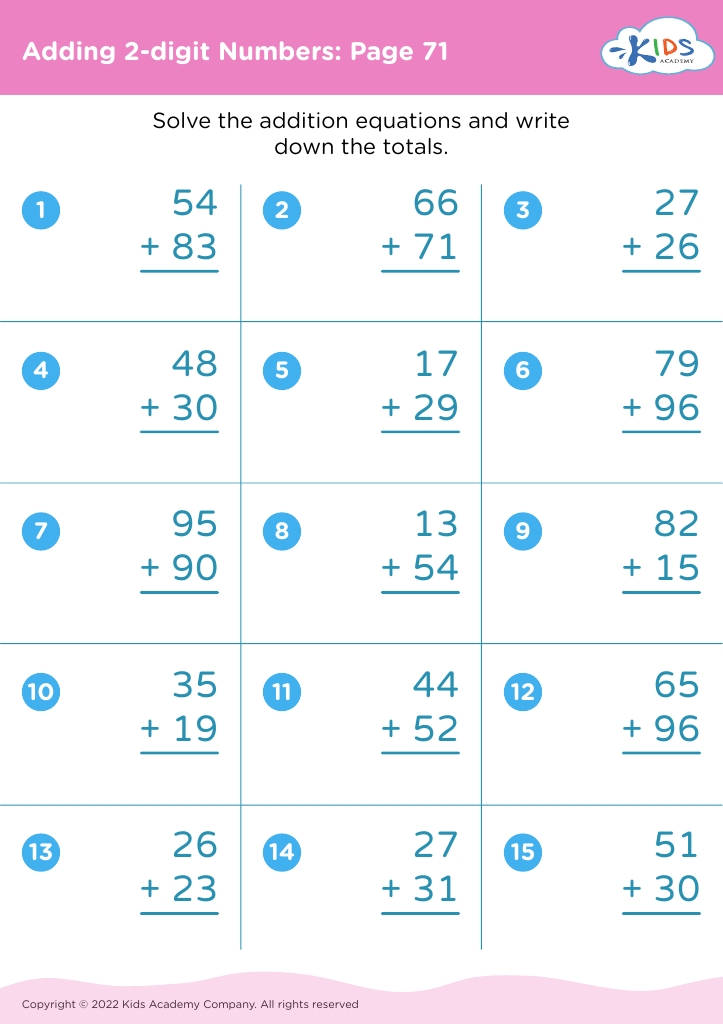
 Assign to My Students
Assign to My Students



.jpg)














